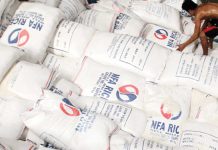
MANILA – The Bureau of Customs (BOC) has created a task force to oversee preparations for the government’s planned fuel-marking scheme.
The Fuel Marking Task Force will be co-chaired by the Customs Enforcement and Intelligence Groups, the BOC said.
The groups are mandated to supervise the overall implementation of the fuel-marking program to ensure that tasks are accomplishment, and coordinate with relevant groups from the Department of Finance (DOF), the Department of Budget and Management (DBM), and other concerned agencies.
“The fuel marking is required on all petroleum products that are refined, manufactured, or imported into the Philippines that are subject to the payment of duties and taxes …” said Customs commissioner Isidro Lapeña.
Fuel-marking dyes are blended with fuel products to characterize the stages which a particular batch has undergone. Marked fuel helps determine whether shipments have gone through the necessary channels.
According to the BOC, a total of 20,000 tests are to be conducted based on the operational plan to check whether the corresponding duties and taxes of petroleum products available in the market have been paid.
“We will implement the law to plug leakages caused by fuel fraud. A robust fuel-marking program will help return the stolen revenue to the government,” Lapeña said.
The DOF has said it hopes to implement the fuel-marking system in 2018, as part of the Tax Reform for Acceleration and Inclusion (TRAIN) law.
In December 2017, President Rodrigo Duterte signed into law the TRAIN Act, which reduced personal income taxes and expanded the value-added tax base.
With the tax reform law in place, the prices per liter of diesel rose by P2.50 and gasoline by P2.65 as a result of higher excise taxes. (GMA News)







